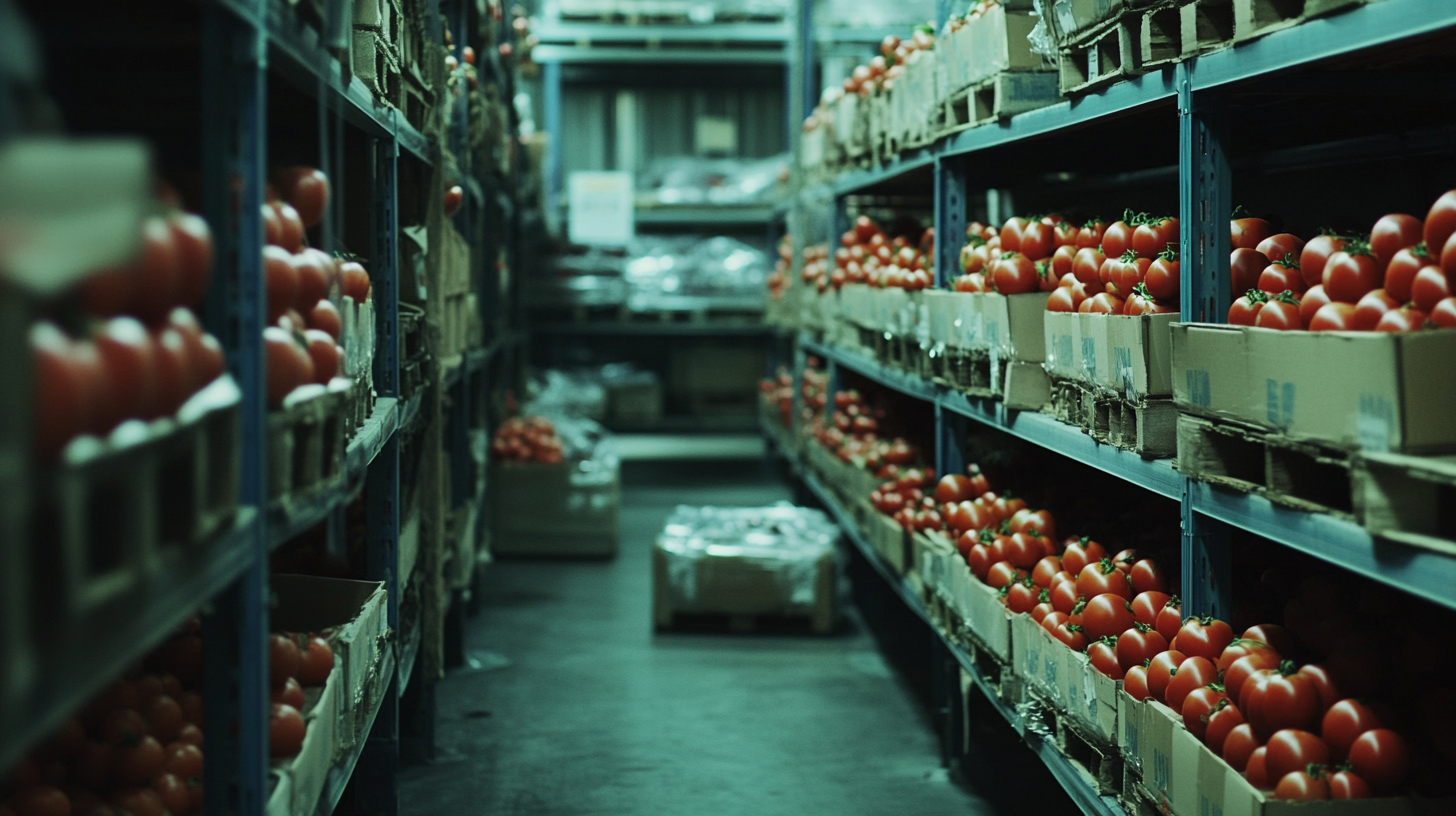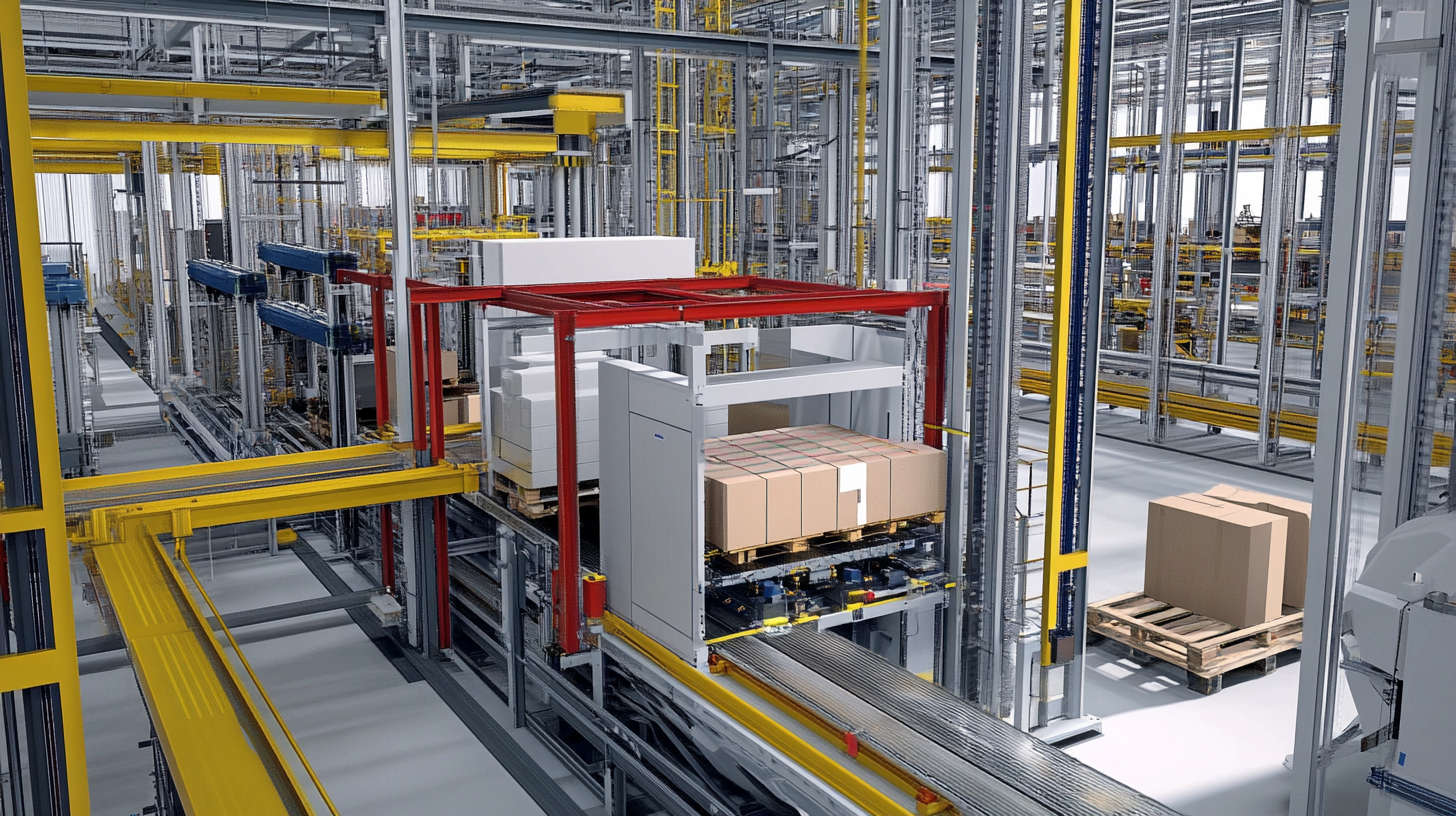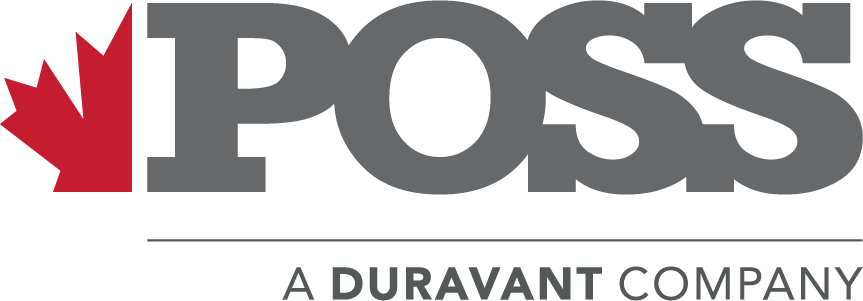The Duravant family of operating companies serve the food processing, packaging and material handling segments.
Unlocking Efficiency Through Innovative Packaging Systems for Global Supply Chains
In the fast-paced world of global supply chains, the demand for efficiency is ever-increasing, compelling industries to rethink their strategies and solutions. One critical area that has garnered significant attention is packaging systems, which play a vital role in safeguarding products during transit while optimizing operational processes. Innovative packaging systems not only streamline the logistics of moving goods across borders but also enhance sustainability and reduce costs. By integrating advanced materials, smart technologies, and design ingenuity, companies can unlock unprecedented efficiency, ensuring that items reach their destinations in perfect condition and on time. This blog will explore how cutting-edge packaging systems are transforming global supply chains, driving innovation, and setting new standards for performance and reliability.

Emerging Trends in Packaging Technology: Shaping the Future of Global Supply Chains
Emerging trends in packaging technology are revolutionizing the landscape of global supply chains, where efficiency and sustainability are becoming paramount. One significant trend is the integration of the Internet of Things (IoT) and artificial intelligence (AI) into packaging systems. These technologies enable real-time monitoring of products throughout their journey from manufacturer to consumer, ensuring optimal conditions and reducing waste. The push for smart packaging not only enhances supply chain transparency but also aligns with the growing demand for sustainable practices, such as using biodegradable materials and reducing overall material consumption.
In the pharmaceutical sector, innovation in packaging plays a critical role in ensuring product integrity and patient safety. Advanced designs that incorporate smart features, such as temperature monitoring and tamper-evident seals, are gaining traction. Additionally, the manufacturing process is evolving with a focus on sustainability, shifting towards recyclable and eco-friendly materials. These developments reflect a broader trend across various industries, where new packaging solutions are not only enhancing the functionality and reliability of products but are also shaping a more sustainable future within global supply chains.

The Role of Smart Packaging in Enhancing Efficiency and Traceability
In today's rapidly evolving global supply chains, the integration of smart packaging systems plays a pivotal role in enhancing both efficiency and traceability. Smart packaging incorporates advanced technologies such as RFID tags, sensors, and QR codes, enabling real-time data collection and monitoring. This not only streamlines the logistics process but also provides stakeholders with immediate access to vital information regarding product location, condition, and expiration dates. As a result, businesses can respond more swiftly to operational disruptions, minimizing delays and reducing waste.
Moreover, the benefits of smart packaging extend beyond mere efficiency. Enhanced traceability significantly bolsters supply chain transparency, allowing companies to track their products from production to end-user. This transparency is critical for ensuring compliance with various regulations and fostering consumer trust. With the rise of conscious consumerism, customers increasingly seek products that are responsibly sourced and handled. By implementing smart packaging solutions, businesses not only adhere to these demands but also gain valuable insights into consumer behavior, further enhancing their strategic decision-making processes.
Unlocking Efficiency Through Innovative Packaging Systems
This chart illustrates the distribution of different packaging types used in global supply chains, highlighting the growing role of smart packaging solutions in enhancing efficiency and traceability.
Sustainability in Packaging: Balancing Innovation with Environmental Responsibility
Sustainability has become a critical focal point in the packaging industry, especially as companies strive to meet evolving consumer expectations and environmental regulations. According to a report by Allied Market Research, the global sustainable packaging market is expected to reach $500 billion by 2028, growing at a CAGR of over 7%. This trend illustrates the urgent need for innovative packaging solutions that not only enhance supply chain efficiency but also minimize environmental impact. Companies that innovate in packaging design can significantly reduce waste and streamline logistics, leading to both cost savings and an improved carbon footprint.
One effective approach is using biodegradable materials, which have gained traction in recent years. For instance, research indicates that compostable packaging can reduce greenhouse gas emissions by up to 50% compared to traditional plastics. Additionally, brands can adopt lightweight materials to decrease shipping costs and energy usage during transport.
**Tip:** When exploring sustainable packaging options, consider implementing a life-cycle assessment (LCA) to evaluate the environmental impact of different materials throughout their entire life span.
Another area to focus on is the incorporation of post-consumer recycled (PCR) content into packaging designs. According to the Plastic Waste Management Institute, utilizing PCR materials can lower the demand for virgin resin production, thereby conserving natural resources and reducing landfill pressure.
**Tip:** Invest in partnerships with recycling facilities to ensure a steady supply of quality PCR materials while promoting a circular economy.
Unlocking Efficiency Through Innovative Packaging Systems
This chart illustrates the balance between innovation in packaging systems and their environmental impact across various companies in the global supply chain.
Automating Packaging Processes: Transforming Supply Chain Operations
The transformation of supply chain operations is significantly influenced by advancements in packaging technology, spearheaded by automation. This evolution leverages four key technologies: Artificial Intelligence (AI), the Internet of Things (IoT), blockchain, and robotics. These innovations collectively streamline packaging processes, resulting in enhanced efficiency and sustainability throughout global supply chains. For instance, IoT devices facilitate real-time monitoring of packaging systems, ensuring optimal performance and minimizing downtime. Meanwhile, robotics automate repetitive tasks, allowing human workers to focus on more strategic responsibilities, improving overall productivity.
AI is playing a pivotal role in the confectionery sector, revolutionizing production methodologies and consumer engagement. By integrating AI-driven analytics, confectionery businesses can better predict market trends and consumer preferences, allowing them to tailor products accordingly. Additionally, AI enhances supply chain management by optimizing inventory levels and reducing waste, leading to more sustainable practices. As these technologies converge, they not only create value for manufacturers but also elevate the consumer experience, ensuring that products are delivered fresher and faster than ever before.
Unlocking Efficiency Through Innovative Packaging Systems for Global Supply Chains - Automating Packaging Processes: Transforming Supply Chain Operations
| Aspect | Description | Benefits | Examples |
|---|---|---|---|
| Innovative Packaging Design | Utilizing advanced materials and designs to enhance product protection and branding. | Reduced product damage during transit, improved customer satisfaction. | Sustainable packaging solutions, customized designs for specific markets. |
| Automation Technology | Implementing robotic systems and AI software for packaging. | Increased speed and accuracy, reduced labor costs. | Automated box erectors, robotic arm packing systems. |
| Supply Chain Integration | Seamlessly connecting packaging processes with overall supply chain operations. | Improved visibility and coordination across the supply chain. | Use of ERP systems for real-time monitoring of packaging and inventory. |
| Data Analytics | Analyzing packaging data to drive decisions and optimize processes. | Enhanced decision-making, reduced waste and costs. | Predictive analytics for demand forecasting, performance tracking. |
| Sustainability Practices | Adopting eco-friendly materials and practices in packaging. | Improved brand image, compliance with environmental regulations. | Biodegradable packaging, recycling initiatives. |
Case Studies: Successful Implementation of Innovative Packaging Solutions
The landscape of global supply chains is evolving, driven by the need for more efficient and sustainable practices. Innovative packaging solutions are at the forefront of this transformation, showcasing significant impacts through various case studies from industry leaders. For instance, a multinational beverage company implemented a cutting-edge, lightweight packaging system that reduced shipping costs by 20% while minimizing environmental impact. This not only streamlined their logistics but also resonated with eco-conscious consumers, enhancing brand loyalty.
Another compelling example comes from a prominent electronics manufacturer that adopted smart packaging technology. By integrating RFID tags into their packaging, they achieved real-time tracking of shipments. This innovation reduced losses due to theft and damage by 30%, while also improving inventory management. The enhanced visibility provided by the smart packaging allowed the company to respond more rapidly to demand fluctuations, thereby optimizing their supply chain efficiency. Such successful implementations underline the critical role of innovative packaging systems in unlocking new efficiencies within global supply chains.












